You heard it here first. Please see the below article highlighting my criticism of Rep. McDermott and his trip to Iraq...from November of 2003.
Roll Call - November 6, 2003
War of Words Over Iraq
By Amy Keller
A bitter dispute between House Majority Leader Tom DeLay (R-Texas) and Rep. Jim McDermott (D-Wash.) grew even more heated this week, as the Majority Leader fired off an acrid missive accusing the Seattle Democrat of exhibiting "deplorable behavior" during a visit to Iraq last year by criticizing President Bush "while being escorted around a barbaric dictatorship by the dictator's minions."
"You traveled to Iraq on a humanitarian mission, and while there, enjoying the warm reception of Saddam Hussein's terrorist regime, you attacked President Bush for 'setting up to throw out Saddam Hussein,' the very proposition you voted for [H.R. 4664, 105th Congress) under the previous [Democrat] administration," DeLay charged in a personal letter he sent to McDermott on Tuesday.
"Your words, had they been spoken in the United States, would have amounted to mean-spirited but predictable mediocre partisan hackery," continued DeLay's letter. "That they were uttered in Saddam's Iraq, however, perhaps within shouting distance of a torture chamber or mass grave, elevated (or lowered) those remarks to the sickening embarrassment they were."
[# More #] A McDermott aide, however, said DeLay's letter failed to address the central issue that sparked the dispute in the first place - a comment made by a DeLay spokesman that McDermott considered an "insult."
"Someone identified as a member of your staff is quoted in this morning's Roll Call referring to 'the point [Rep. McDermott] was making when he was attacking the United States on foreign soil,'" McDermott wrote in an Oct. 21 letter to the Majority Leader that sparked the written war of words between the two Members.
At the time, McDermott was attempting to use a parliamentary tactic to discredit President Bush's Jan. 28 State of the Union address by having asterisks placed next to the text in the Congressional Record to communicate that portions of the speech were inaccurate - a move that DeLay spokesman Stuart Roy characterized as "just part of a continuation of the points he was making when he was attacking the United States on foreign soil."
But McDermott - who took a controversial trip with several other lawmakers to Baghdad last fall - took exception to that description of his activities.
"Criticizing a President is not tantamount to 'attacking the United States.'" McDermott complained. "I resent and deplore that a Congressional staff member would make such an ill-considered remark."
In his letter, McDermott pointed out that he has "indeed been critical of President George W. Bush" just as DeLay had been "frequently harshly critical of President Bill Clinton." But being critical, McDermott stated, doesn't mean he isn't patriotic.
"Because I love this country, I likewise criticized President Bush's action when I believe he is not acting in the best interests of the United States, and I will not stand for this being equated with attacking my country."
McDermott has emerged as a favorite Republican whipping boy in recent years, after it was revealed that McDermott had leaked the contents of a recorded telephone call between GOP leaders to the press. In 1998, Rep. John Boehner (R-Ohio) sued McDermott in federal court for a violation of privacy, and the protracted suit has yet to be resolved.
And it looks like this more recent skirmish isn't likely to die down any time soon either.
DeLay isn't backing down - stating that he stands by his spokesman's "assessment of your deplorable behavior in Iraq."
"I've no doubt you love your country with patriotic fervor, Congressman," DeLay wrote, underlining the sentence for emphasis. "But your obvious dislike for President Bush - mixed with an opportunity to make national news - pushed your rhetoric over the line last September."
There's no word yet on whether McDermott's planning to send the tilt into a third round, although his staff appeared less than satisfied with the Majority Leader's "diatribe."
"As enjoyable as it was to read Mr. DeLay's views on U.S. foreign policy, what Mr. McDermott took issue with was a DeLay staffer being quoted as saying Mr. McDermott had criticized the United States, when, in fact, Mr. McDermott criticized President George W. Bush," a McDermott spokesperson said Wednesday. "Evidently, for Mr. DeLay, there is no difference."
A Bitter Exchange: The Letters
The following is an exchange of letters between Rep. Jim McDermott (D-Wash.) and House Majority Leader Tom DeLay (R-Texas) over statements a DeLay staffer made about McDermott's visit to Iraq last year.
---------------------------------------------------------------------------
Dear Congressman DeLay,Someone identified as a member of your staff is quoted in this morning's Roll Call referring to "the points [Rep. McDermott] was making when he was attacking the United States on foreign soil." If this person was not misquoted, I insist that you require him to retract this false statement about me.
Criticizing a President is not tantamount to "attacking the United States." I resent and deplore that a Congressional staff member would make such an ill-considered remark.
I have indeed been critical of President George W. Bush, just as you were frequently harshly critical of President Bill Clinton. I assume that you criticized President Clinton because of your concern that he was not acting in our nation's best interests. Because I love this country I likewise criticize President Bush's action when I believe he is not acting in the best interests of the United States, and I will not stand for this being equated with attacking my country. Indeed, I believe that to fail to criticize actions I believe to be contrary to the interests of the United States would be to fail my country.
Please inform me whether the staffer was correctly quoted and, if so, what action you have taken to rectify this insult.
Sincerely,
Member of Congress
---------------------------------------------------------------------------
In receipt of your letter of October 21, I have reviewed the Roll Call article it mentions, as well as interviews you gave while in Iraq last year, which prompted my spokesman's remark.
Upon reviewing both, it seems clear the citation in the Roll Call story was perfectly accurate, as was my spokesman's assessment of your deplorable behavior in Iraq.
You traveled to Iraq on a humanitarian mission, and while there, enjoying the warm reception of Saddam Hussein's terrorist regime, you attacked President Bush for "setting up to throw out Saddam Hussein," the very proposition you voted for (H.R. 4664, 105th Congress) under the previous [Democratic] administration. You further accused the president of being willing to lie the nation into war, essentially accusing him of treason, again, while being escorted around a barbaric dictatorship by the dictator's minions.
I've no doubt you love your country with patriotic fervor, Congressman. But your obvious dislike for President Bush - mixed with an opportunity to make national news - pushed your rhetoric over the line last September.
Such vitriol extended to the point where it willfully endorsed the propaganda of an international war criminal at the expense of American interests and credibility in the war on terror. Your words no doubt emboldened the Baathist regime, particularly your suggestion that the benefit of the doubt about weapons inspections be given to Saddam Hussein instead of the national security apparatus of the United States and the unanimous opinion of the international intelligence community.
Despite its hypocrisy and repugnance, your hate speech has become a rhetorical motif among Washington Democrats, a lame ploy used to mask your party's weak and indecisive foreign policy. The troops, the coalition, the American people, and the greater cause of human freedom would be better served by a Democrat Party that realized the enemy in the war on terror is the terrorists, not our commander-in-chief.
Your words, had they been spoken in the United States, would have amounted to mean-spirited but predictably mediocre partisan hackery.
That they were uttered in Saddam's Iraq, however, perhaps within shouting distance of a torture chamber or mass grave, elevated (or lowered) those remarks to the sickening embarrassment they were.
Your Democrat colleagues and you had the opportunity to right the wrong you committed in Iraq by supporting the supplemental appropriation bill to fund ongoing military and democracy-building operations in Iraq and Afghanistan. Surprisingly, you did nothing to resurrect Democrat credibility on national security and foreign policy; instead, you voted against the supplemental and encouraged Mrs. Pelosi and the rest of your caucus to do the same.
Sincerely,
Tom DeLay


















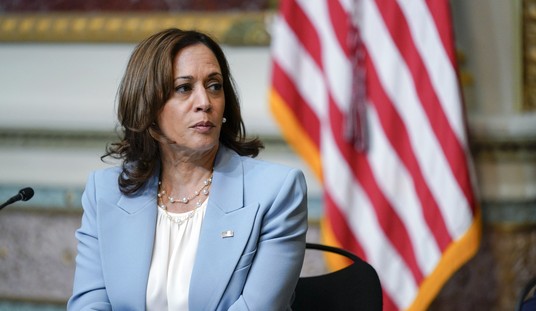

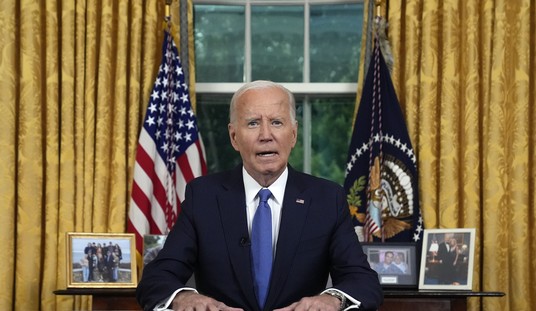

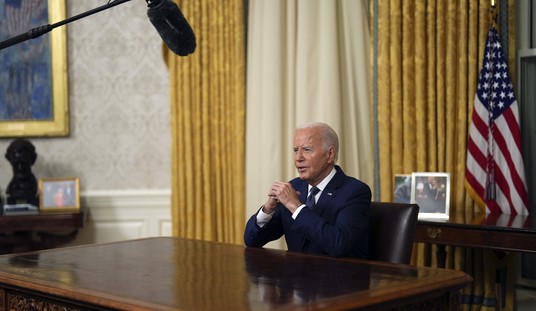
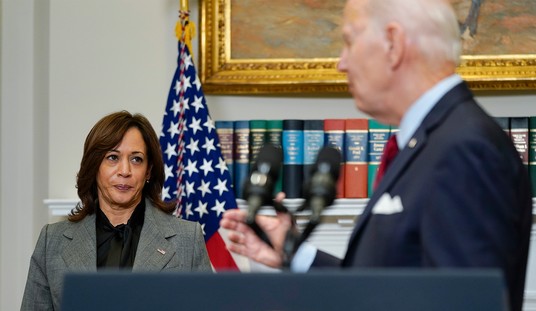
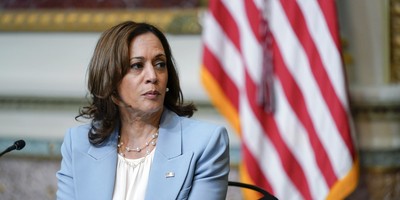
Join the conversation as a VIP Member